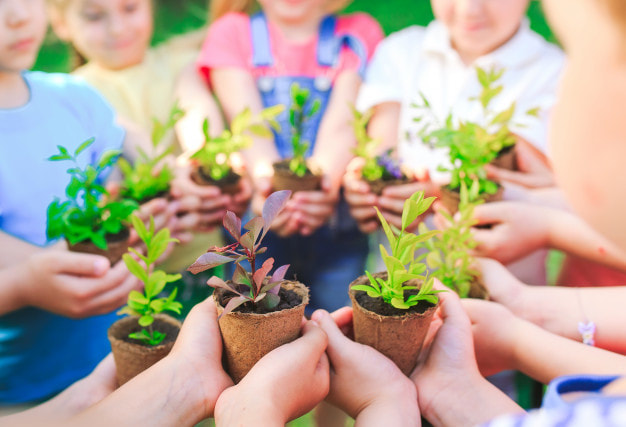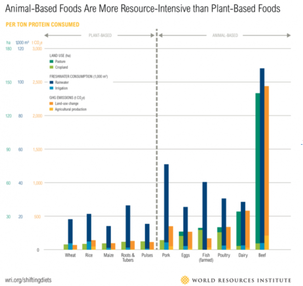|
By: Arushi Rai In our ever changing and growing population, sustainability is vital to preserving the Earth. As our communities expand, our carbon emissions continue to grow which causes us to have a greater carbon footprint. A large carbon footprint/CO2 emissions is very harmful to our environment. One negative impact is global climate change. This is endangering natural habitats of animals, causing glaciers to melt resulting in sea level rise, harsher weather patterns, and it’s making agriculture and human life very difficult. In order to reduce our carbon footprint, we all need to learn how to become environmentally sustainable in our community. What Causes a High Carbon Footprint? The main factors of a high carbon footprint are large consumptions of fossil fuels (energy and transportation) and food. Fossil fuels are created from the remains of plants and animals which are then harnessed into energy that is used to power cars, homes, etc. However, in the process, fossil fuels cause a lot of environmental issues as well as human health issues, such as water and air pollution. Fossil fuels also release large amounts of carbon dioxide which are large contributors to global climate change. Additionally, fossil fuels are nonrenewable resources that are depleting. It is becoming harder to mine fossil fuels, so companies are finding newer, more challenging, and harmful methods to extract fossil fuels, leading to more dangerous environmental issues. Despite all the problems with fossil fuels, they are still the world’s dominant energy source, providing for about 80 percent of our energy needs (Melissa Dunchak from NRDC). Food production makes up a large chunk of our carbon footprint. Meat or Animal- based products make up 14.5% percent of the total greenhouse gas emissions(“Key Facts and Findings,” FAO). Animal-based foods such as beef produce up to 300 kg CO2eq./kg(greenhouse gasses such as methane, carbon dioxide, nitrous oxide). Switching to a plant-based diet can effectively decrease CO2 emissions by 53%(Scientific American). A good and healthy plant based diet is made up of lots of fruits, vegetables, whole-grains, and legumes. If we can reduce our consumption of animal products then we can lessen our carbon footprint. What is Sustainability?
According to Oxford Dictionary sustainability is the act of avoiding the depletion of natural resources in order to ensure healthy and balanced environments. We all need to try to learn and incorporate sustainable habits into our lifestyles, so we can reduce (and try to reverse) the effects of climate change on our planet. Sustainability Tips:
3 Comments
7/2/2023 11:50:53 pm
I really wanted to thank you for this excellent and educational article you are presenting at this website. My extensive internet investigation has at the end of the day been recognized with awesome facts to talk about with my friends. I feel lucky to have come across the website and look forward to spend more excellent reading time here. Thanks a lot once again for all the details. Opinion from <a href="https://www.allshopsdirectory.com">All Shops Business Directory</a> user.
Reply
Leave a Reply. |
TUGIWelcome to Seeds for Thought, the TUGI Blog where we will be highlighting incredible stories of environmental activists and change makers, environmental news, and tips to living a more green and sustainable lifestyle. If you are interested in learning more about what we are doing on a monthly basis, subscribe to our TUGI Newsletter. Archives
May 2021
Categories |
TUGI
|
|


 RSS Feed
RSS Feed
